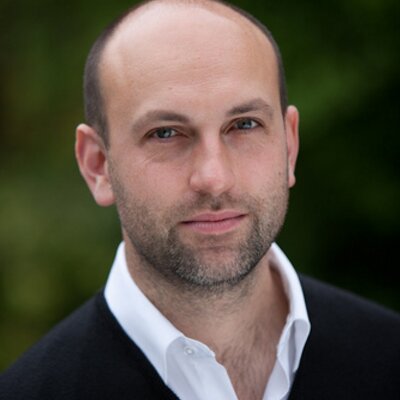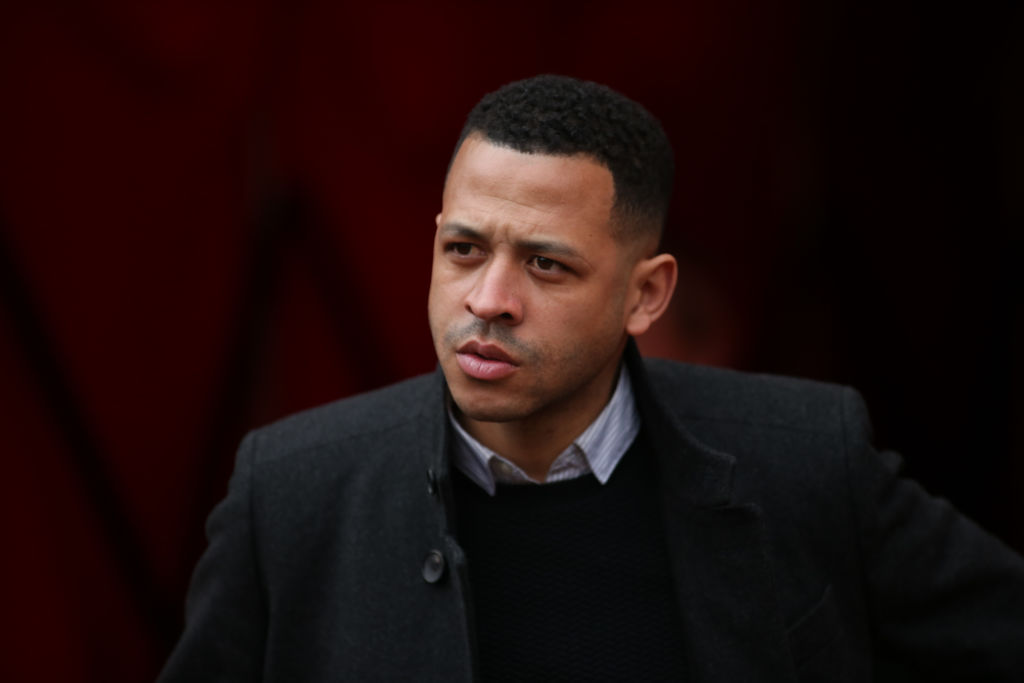David Ginola: 'I got a call from David Dein at about midnight - he wanted me at Arsenal'
David Ginola answers FFT readers' questions about becoming a lawyer, choosing Newcastle over Barcelona, out-acting Eric Cantona and being upset when France won the World Cup...
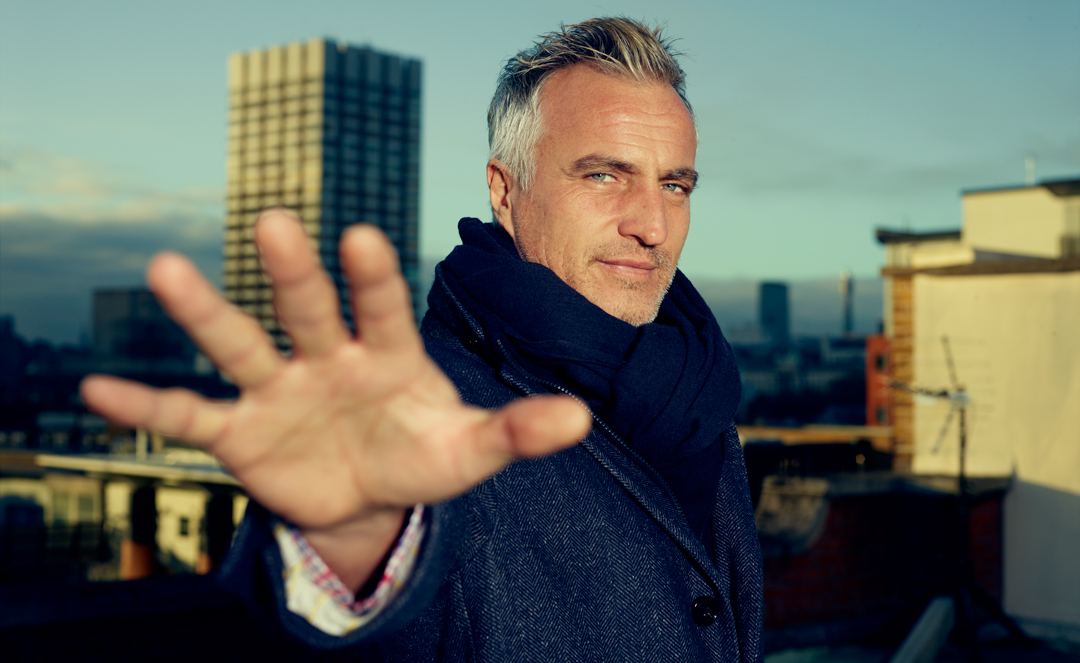
Date of birth: January 25 1967
Height: 6ft
Position: Forward
Clubs: 1985-88 Toulon (81 games, 4 goals), 1988-90 RC Paris (61, 8), 1990-92 Stade Brest (50, 10), 1992-95 PSG (142, 38), 1995-97 Newcastle (76, 7), 1997-2000 Spurs (127, 22), 2000-02 Aston Villa (41, 5), 2002 Everton (7, 0)
International: 1990-95 France (17 caps, 3 goals)
Honours: Ligue 1 (1993/94), French Cup (1993, 94, 95), French League Cup (1995), English League Cup (1999)
Awards: French Player of the Year (1993), PFA Player of the Year (1999), Football Writers' Player of the Year (1999)
It's the afternoon of the World Cup draw and David Ginola is getting ready for his shift as a guest to discuss the 2014 tournament in Brazil at talkSPORT's studios in central London.
Through the window of the studio Danny Kelly and Andy Jacobs, who are currently presenting on air catch, sight of Ginola. “Look at you Andy,” chides Kelly. “Have you not met David before? You’ve suddenly got a funny look on your face. You’ve gone all warm and gooey!”
In the '90s, David Ginola had this effect on grown men as one of the most thrilling players in the world when he starred for Paris Saint Germain, Newcastle United and Tottenham Hotspur.
In 1999 when he was voted both the PFA Player of the Year and the Football writer’s’ Footballer of the Year, the Dutch icon Johan Cruyff even hailed Ginola as the best player in the world.
But his career was strewn with disappointment too, never playing for one of the European superpowers he believed would befit his talents and never playing for France at a major tournament either.
FourFourTwo meets the immaculately dressed Ginola to discuss missing out on signing for Barcelona, the culture shock of Newcastle, why he’ll never speak to Gerard Houllier, being called Mr Blobby by John Gregory and why he never tracked back on the pitch.
Who were your football heroes growing up?
Alfie Cranton, North London
It was always Johan Cruyff, he made playing football seem so easy. I love watching him, and he was the only poster on my bedroom wall as a kid. I wanted to play just like him. I remember I was given Michel Platini’s book for my 12th birthday as I liked him too.
The best features, fun and footballing quizzes, straight to your inbox every week.
Is it correct that you studied law at the University of Nice? Would you have been a good lawyer?
Ian Stokes, via Twitter
Yes, that’s true. I would have been a fantastic lawyer. I would have started in France and then gone to an international level. I found this very attractive as a job, and to help people. I think I am a good narrator. When I speak to people they listen to me. I don’t want to sound too pretentious, it is just a fact that all through my career, when I make a point or statement people listen.
I would have been a fantastic lawyer. I would have started in France and then gone to an international level. I found this very attractive as a job, and to help people. I think I am a good narrator. When I speak to people they listen to me
What are your favourite memories of winning only PSG’s second ever French title in the 1993/94 season?
David Amos, via Twitter
I was French Footballer of the Year that season, and we won the title by beating a great Marseille side, who were then the reigning European champions. Winning the league in your own country is a special feeling, and we went 27 games unbeaten too during the season. I remember one game playing Sochaux, it was minus five degrees and I was playing up front with George Weah. George said to me: “David, it is too cold for me, I won’t play today.” I just said, “No problem George, we’re going to do it.” We won 2-0. George was on the pitch, but he didn’t move, he didn’t do anything because he was too cold. But we knew we could count on him in the following game, and there was a real team spirit and bond amongst us.

When you left PSG how close did you come to moving to Barcelona rather than Newcastle?
Richard Kray, Uxbridge
In the summer of 1995 the Barcelona manager Johan Cruyff invited me to play in his golf tournament for his foundation in Tarragona. He said to me there, “I want to sign you, I have been watching you and you’ve been fantastic, you are my priority for next season.” We played golf with Marco van Basten and other guys there away from the city so there was not too much speculation. Cruyff told me he could only sign me if he could sell Gheorghe Hagi and Hristo Stoichkov. In my head I was already there, wearing that shirt and in my new house, but they couldn’t sell those two players so it never happened. A year later when I was then at Newcastle I got a phone call on holiday in France from Sir Bobby Robson, who was then Barcelona manager and said: “David, I am going to make an offer for you.” But Kevin Keegan called me, and said, “I understand you want to go, but there is no way I am going to let you leave. When Andy Cole left for Manchester United I got so much trouble from the fans and I can’t risk that again.”
I was in Amsterdam with Terry McDermott about to sign for them when I got another phone call from the Arsenal chairman David Dein at about midnight wanting to know if I had signed for Newcastle as they wanted me at Highbury
What was it about Newcastle United that convinced you to go to England?
Mark Croughton, South Shields
I didn’t know much about Newcastle to be honest, I just knew they had recently been promoted. It was Kevin Keegan who convinced me to come. I was waiting for Cruyff to phone me back to join Barcelona, so I delayed going back to Paris for pre-season training, but it didn’t happen so I got an offer from Newcastle. I was in Amsterdam with Terry McDermott about to sign for them when I got another phone call from the Arsenal chairman David Dein at about midnight wanting to know if I had signed for Newcastle as they wanted me at Highbury. But I had given my word to Newcastle so I went there.
Was it a culture shock to move from Paris to Newcastle in the 1990s both on and off the pitch?
Aiden Potts, Rottingdean
Oh yes, it was a shock when I arrived at Newcastle! The football was fine, it was everything else that was so different. When you have lived in Paris for four years, with the food and culture, it is all very French, and then you arrive in the North East of England, Geordieland, it is a big shock. It was July and it was still freezing cold. My wife went for a tour of the city in the Rolls Royce of the Newcastle chairman Sir John Hall, and she came back crying! We had to embrace our new life, we made new friends, I loved the Geordie people, who are loving and amazing. We went to Whitley Bay for a Sunday Roast and I saw people swimming in the sea, but put one toe in the water and it was too cold!
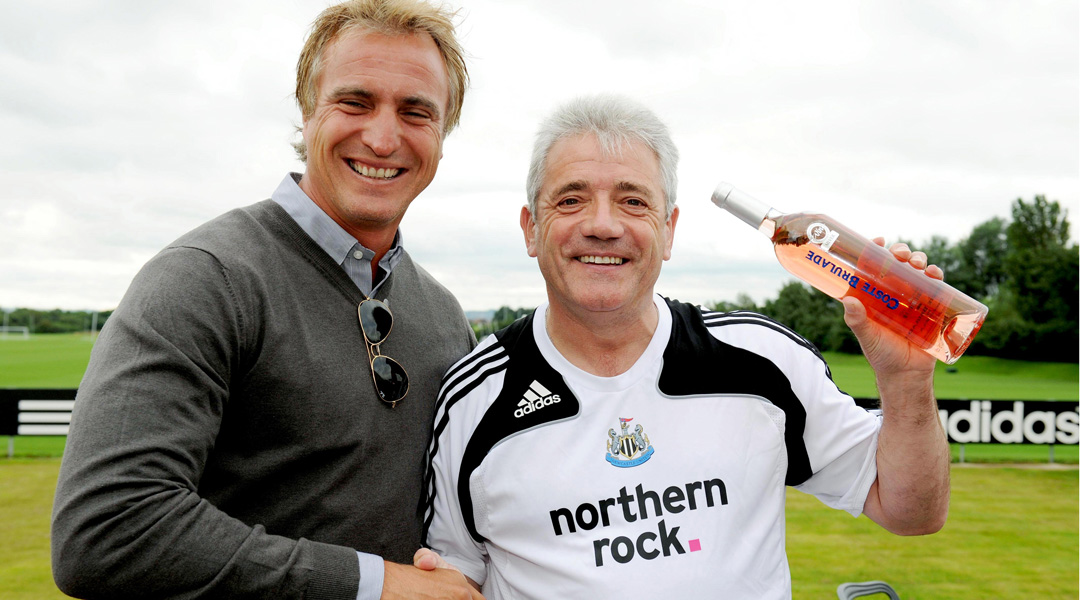
What was it like to play for Kevin Keegan? What was the reaction in the dressing room to his infamous “I would love it” rant on television?
James Lloyd, Singapore
Kevin Keegan is all about having fun. He is not about tactics, it is nothing to do with that in his pre-match speeches and in training. And with that rant? Well, we were in the dressing room, but he was shouting so loud we could still hear it. We went outside to find out what was happening, we thought he was in an argument. He was pissed off, he was really in a bad mood. At that moment we started to feel the pressure like him. We were 12 points clear, but then we started making mistakes. Keegan didn’t think too much about the tactics, he didn’t change anything towards the end of the season.
How fun was it to play in that famous Newcastle side in the 1995/96 season, but also how agonising was it to throw away that large lead over Manchester United right at the end? Why did you fall short?
David Hornby, London
When you have myself, Faustino Asprilla and Peter Bearsley you give them their freedom, and I felt I could do whatever I wanted. We had a good midfield with Rob Lee and David Batty, and then the rest of us were free. Keegan was fantastic, but the turning point was when we lost that famous game 4-3 to Liverpool. We were an entertaining team, but we then realised we could lose games.
It was probably the worst time of my life. It was terrible. I was there in the Stade de France with the BBC and saw them win the World Cup. I went back to my hotel room and I was probably the only Frenchman crying
How hard was it to watch France win the World Cup in 1998 and not be on the pitch with them?
Michelle Tennyson, Essex
It was probably the worst time of my life. It was terrible. I was there in the Stade de France with the BBC and saw them win the World Cup. I went back to my hotel room and I was probably the only Frenchman crying. I was thinking what had I done not to be involved in this as I had done everything to live in the right way. I realised my dream of winning the World Cup on my home soil was over. It wasn’t about me, I just wanted to make my Mum and Dad proud. I felt guilty I denied them the chance to enjoy this moment in French history. I didn’t understand why I wasn’t playing as a year later I was player of the year in England.
Do you feel you should have won more than 17 caps for France?
Stuart Olds, Beckenham
Of course! Not just because I think I’m good. It is because our generation was a lost generation [It included Eric Cantona] in the way we had great players, but we didn’t manage to do anything. Right away they had to step over us and change everything, bring in new players and start all over again. It was a failure to qualify for the 1994 World Cup, and then the European Championships was in England in 1996, and I was already there, and yet I didn’t get to play in it.
How do you look back at the night France lost to Bulgaria to miss out on the 1994 World Cup, and have you forgiven Gerard Houllier for blaming you for it? He said you had “committed a crime against the team” and “sent an Exocet to the heart of French football.” How is your relationship with him now?
Lucy Stewart, Brighton
I don’t think I will forgive anything. The words he used and what happened conditioned my entire future with the French team. I was always told as a child that you win and lose as a team. After that game I was made to feel as if I was playing an individual sport, and actually the other players didn’t say anything, they decided to hide behind the fact I was being blamed. I don’t have any relationship with Houllier now, and I don’t want one.
When were you at your peak as a player? Was it when you turned 30 and moved to Tottenham?
Howard Rittle, Wallington
I think it was that time, and it was because they were relying on me a lot. They were relying on me to make a differences in games, a little bit like Gareth Bale last season. George Graham would sit next to me and say: “David, we need a little bit of magic from you.” I loved that, I felt very important for the club and so I had to achieve something for them, and to give back to them. I might have looked like an individual player, but it was all about creating something for other players.
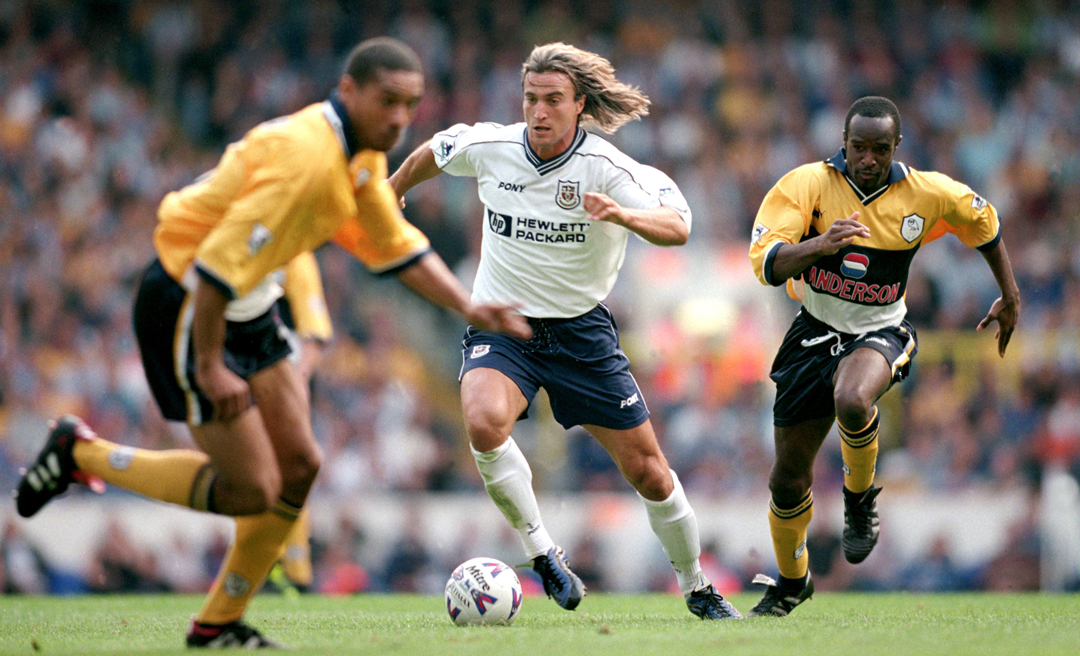
Who is better: You at your peak or Gareth Bale now?
Grant Fuller, Hornchurch
Gareth Bale, he is fantastic, and the main difference is he is only 23, and can get better, whereas I was over 30 at Tottenham. Even now the difference with players is at an early age is they are so much more mature than when I played. At 23 I was good, but I wasn’t good enough to impose myself, and as a young player you had an understanding with the older players to know your position.
I don’t think I will forgive anything. The words he used and what happened conditioned my entire future with the French team. I don’t have any relationship with Houllier now, and I don’t want one
How proud were you to win the 1999 Footballer of the Year award, but were you surprised as Manchester United won the treble that season?
Nigel Cowdrey, Rochdale
I didn’t play football to win individual awards. I wanted to win trophies with my team. However, it was great to win that award. I didn’t play in the 1998 World Cup so it was a difficult time for me, maybe I could have stopped my career, but the fans were very supportive so I had to carry on, and I probably had the best season of my life in terms of consistency and fitness. I was playing every week.
What is the secret to dribbling with the ball and beating a man?
Matthew Deighton, London
It is instinct and talent. It is not something you learn, however the most important thing is to be really, really fit. You have to be at your peak of fitness, which means that you can dribble and get past players. No one could get close to me, defenders were saying: “David is a nightmare.” In my first pre-season training with George Graham I worked very hard to impress him because a lot of people were saying I was a luxury player. I thought “OK, I will prove you wrong.”
Which defender did you have the most trouble getting past?
Paul Patterson, Southend
Lee Dixon. He understood how to stop me the best. He didn’t manage to do it all the time, but he just knew he couldn’t leave me with any space. If he gave me a couple of yards, boom, I was in, so he got really, really tight, everywhere on the pitch I could feel him there. He was saying, “Don’t forget I am right here.”
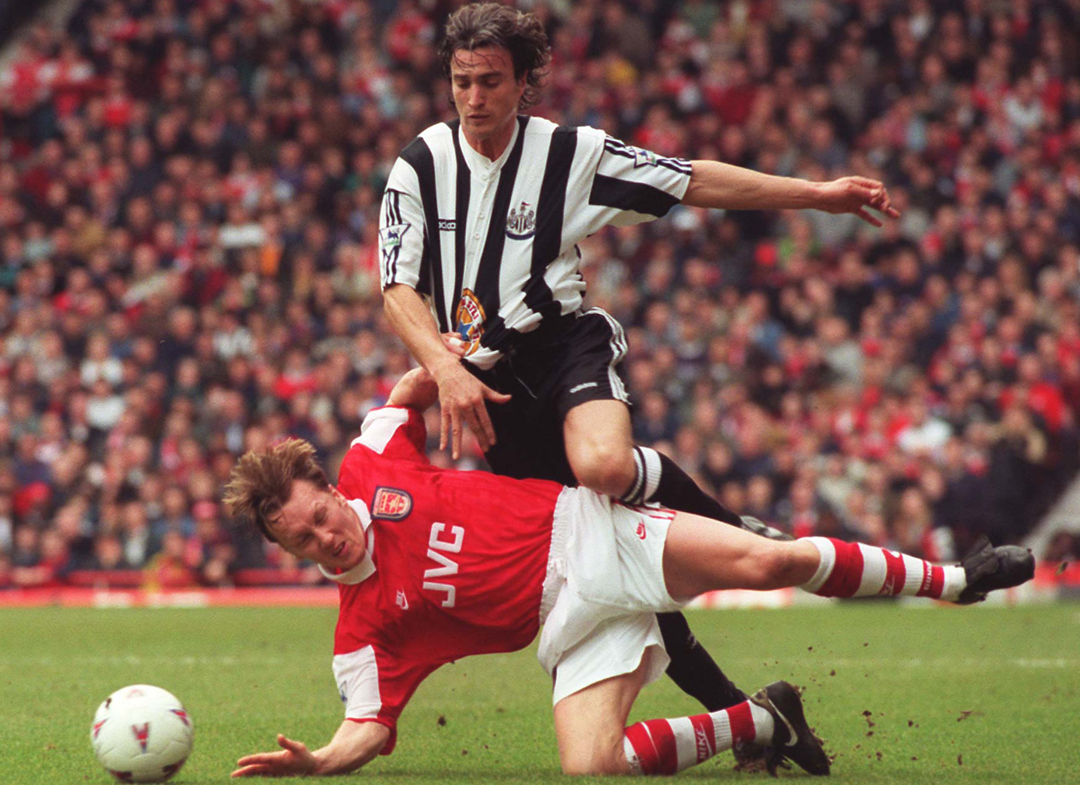
You said in your book you thought George Graham was jealous of you and not a big fan of yours. Why didn’t the two of you get along?
Michael Sullivan, London
George knew he had to manage me, and he knew I was loved at the Lane. He had quite a big ego, so if the club was going to be successful it would be about him. I didn’t have a problem with that, but I realised I had to be at my best all the time. I had some arguments with him. I know that after the game if we had done well, the journalists would say: “David was fantastic wasn’t he?” But he didn’t want to talk too much about that, and I can understand that. In the dressing room George Graham could shout at you, and when you asked why he would give you a little wink and a smile to say “I’m the boss.” There was a time he was in hospital and he couldn’t make the game so I called to ask him how he was and to tell him that we missed him. I think he was surprised as I was probably the only player to phone.
Why did you leave Tottenham in the summer of 2000?
Victoria Ledgeley, Chelmsford
George Graham didn’t want me anymore. He said to Alan Sugar to put me on the transfer list. I think I had become too big for him, I had just been Player of the Year. I wanted to end my career at Spurs. I was 32 I could still play at my best, and I had been working hard to be at this level. I didn’t want to leave.
John Gregory was a nightmare for me. I was with a manager who didn’t understand me. I was there to play on a Saturday, and not on a Wednesday against the reserves
John Gregory talked about your “magnetism” when you joined Aston Villa, but how do you look back at your two years there?
Rob Sessions, Halesowen
My magnetism? Wow! Thinking about my time at Aston Villa right now I feel a bit of shame about it. [John Gregory] was a nightmare for me. I was with a manager who didn’t understand me. I was there to play on a Saturday, and not on a Wednesday against the reserves. If on the Tuesday morning rather than going running through the woods and getting injured I needed a bath and a massage that is the way it should be. I don’t want any favours, but after 10 years I knew what was good for me. I would have liked him to understand who I was.
He said I was too fat, and then I pulled up my shirt to show I wasn’t. The end for me was when I saw the back of The Sun with my head placed on the body of Jimmy Five Bellies after he said: “David Ginola is Mr Blobby.” It was a lack of respect to me, and it was terrible for me.
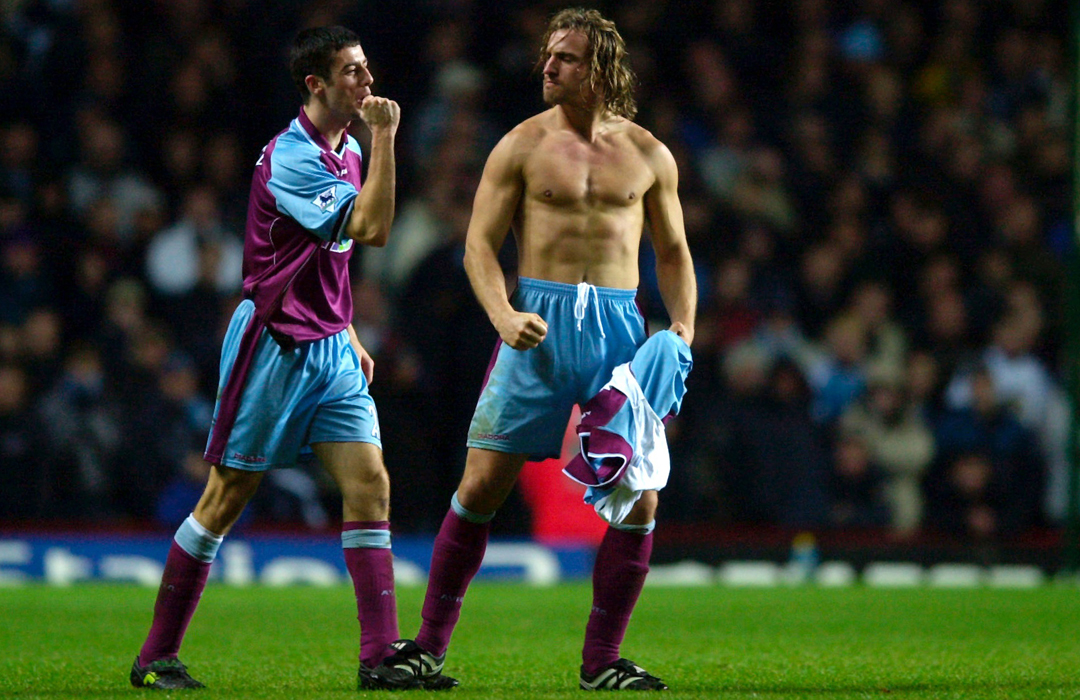
What do you say to those managers and pundits who claimed you were a luxury player who never tracked back?
Bryan Shallcross, via Twitter
I wasn’t meant to do that. The managers who were good to me were the ones who just let me do my stuff. You give me the ball and I do the rest.
Over your career which manager got the best out of you?
Ian Burns, Mansfield
Artur Jorge at Paris Saint Germain. Under him I was Player of the Year and we won the league. He gave me freedom, but he never said much to me, there were no words, you would just see a little smile underneath his large mustache.
He was the funniest person I have ever met and I am only sorry I didn’t share a dressing room with him for longer
What was it like sharing a dressing room with Paul Gascoigne at Everton? Were you ever the victim of one of his famous pranks?
Gill Bowden, Frodsham
He was the funniest person I have ever met and I am only sorry I didn’t share a dressing room with him for longer. I can remember the first morning I trained with Everton he came out on to the pitch wearing this wig with long flowing hair because my hair was long at the time. It made everybody laugh.
I remember we played against each other when we were both 20-years-old at the Under-21 Toulon Festival, and France beat England in the final. You could see then he was going to be an amazing player.
You have worked for the Red Cross on landmines. Do you think footballers should use their status to do more of this work?
Cade Rightley, via Twitter
I think the world of football does do a lot of charity, but we can always do more. We should use football to raise money for different causes, this should be a duty for footballers.
How did you enjoy your acting roles after your football career? Will you do more of it, and what would be your dream role?
Frank Lowe, Rochester
I really enjoyed it, I had never done it before. When I was 9 I dreamed about being a footballer not a movie star. My dream role? Maybe Iron Man, I would love to be Tony Stark.
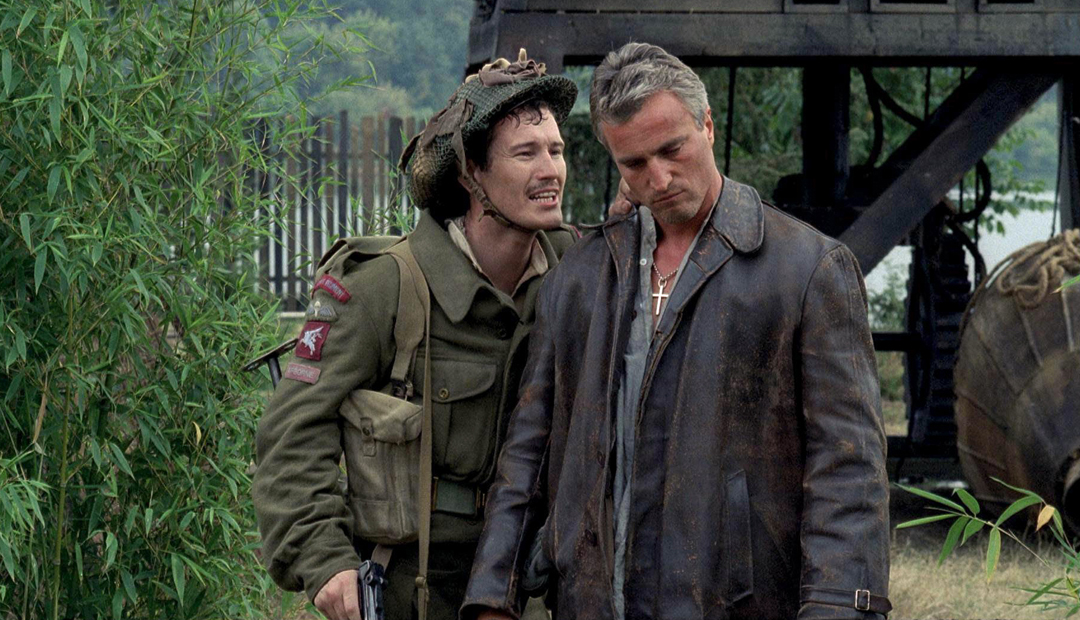
Who is a better actor: you or Eric Cantona?
Jo Blockley, Cardiff
I think Eric has done really good. He started acting straight away after football, he has been working very hard, he is capable of being a really great actor. I haven’t done enough to be compared to him.
Your hand gesture to Jake Humphrey on BT Sport was pretty funny. Do the French do that gesture or did you learn it here?
Justin Harris, via Twitter
The thing to stress is I didn’t know we were live on air when I did it. It is the type of thing you do in a dressing room, but not on television. French people don’t do that, we don’t have this gesture in France, it is an English thing. But I am sorry I did it on television.
This interview originally featured in the March 2014 issue of FourFourTwo magazine. Subscribe!
Sam Pilger is a freelance sports writer who writes for Forbes, FourFourTwo, Optus Sport, The Athletic and The Times Magazine. He was previously the deputy editor of FourFourTwo magazine (lucky him), still contributes regularly and has written several books, including Manchester United's Best XI and For Club and Country with Gary and Phil Neville.
